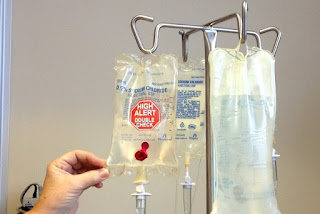Medical waste disposal in Georgia

Medical waste is broadly classified as any item that comes into contact with body fluids. Specifically, it is any solid waste that is generated in the diagnosis, treatment or immunization of humans. This type of waste was once collected in special bags and plastic boxes in clinical settings and then disposed of like normal trash. Medical waste disposal in Georgia However, this process was quickly found to spread diseases and viruses and potentially cause outbreaks. Today, the red biohazardous containers and bags seen throughout hospitals and doctors’ offices are used to safely remove sharps, needles, and IV catheters that contain any human blood or bodily fluid. Medical waste also includes paper towels, wipes, gloves, syringes without needles, bandages or dressings with small amounts of dry blood or fluid, and any other material from medical care. Syringes with needles or sharp objects that can pierce through a plastic bag require a special storage The proper man...



